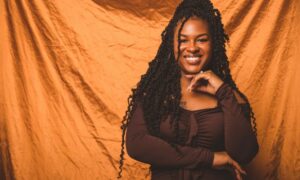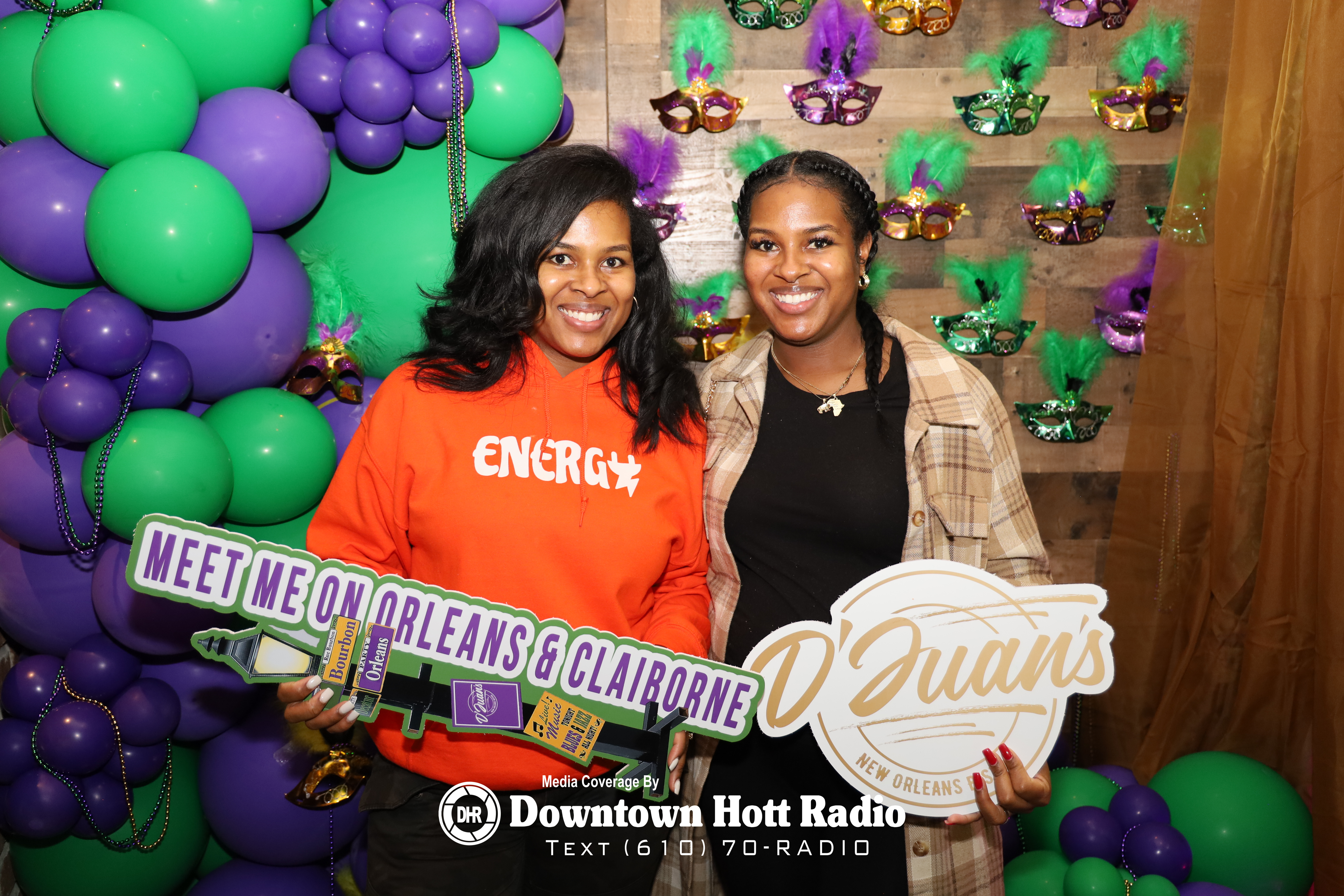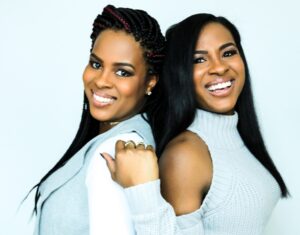As a part of our series called “Making Something From Nothing”, I had the pleasure of interviewing Patricia Kayanga .
Patricia Kayanga is a first-generation immigrant from Uganda. Her family came here under unfortunate circumstances but was blessed to know a better life. They wouldn’t have been here if it wasn’t for the sacrifices of Patricia’s mother after her father’s murder. Beyond getting Patricia the training and education to be the woman she is today, her mother is also the brain behind the business idea. After complaining about the many expensive underwears, Patricia ruined because of her unpredictable cycle, Patricia’s mother encouraged her to create something that works for her that she could dispose of. Patricia started dreaming and created Ohhs, biodegradable disposable underwear made from bamboo and non-woven fabric. Patricia wanted to create a product that felt good with a business structure that served a greater purpose. While researching the market, Patricia found that millions of girls drop out of school due to menstrual stigmas within their communities or simply a lack of resources. Patricia realized that if she didn’t have the opportunity to come to the states, she might have been one of those girls. As Patricia remembered her past and purpose became to make a difference in a girl’s life one day at a time while creating something simple for every woman. Patricia’s business motto is, “we are inspired by women for women.”
Thank you so much for doing this with us! Before we dive in, our readers would love to learn a bit more about you. Can you tell us a bit about your “childhood backstory”?
Iwas born in Uganda. For the most part, life was good and easy. I had no worries I could think of besides trying to fit in at school. That’s until the age of 6, when my father was murdered. Everything changed. It was the first time I remember feeling like an adult. Very few children don’t see images of their slain father and manage to maintain their innocence. With no clue who killed my father, my mom took us to live with her relatives in a different region, and she fled to the United States with a few dollars to her name.
For four years, she worked and saved to bring us to the states. When we came, we didn’t have much. I remember some family friends bringing us their old clothes. I struggled to fit in at school for some time. Somehow, I convinced myself that if I practiced sounding American enough, the kids would stop teasing me about my accent or calling me “ an African booty scratcher.” I would go home, watch Fresh Prince of Bellaire, Full House, and Moesha, and practice my American accent. The kids at that school never forgot, but we changed addresses which meant a change in school, so I put my new accent to good use there. The kids in my new school were much likable, and I wasn’t the only African in school. There were many others like me. In high school, I learned to stand tall in my identity as an African Immigrant, and in college, I celebrated it and shared my culture with others. Today, I’m a naturalized American from Uganda. I call America and Uganda my homes. One made me, and the other raised me to be who I am today.
Can you please give us your favorite “Life Lesson Quote”? Can you share how that was relevant to you in your life?
My mom often said to my siblings and I, “banna bange muli banaku” when one of us misbehaved or got out of line. “Banna bange muli banaku” roughly translates to “my children, you come from sorrow.” She was telling us to be better, do better, because where we come from, there’s nothing to fall back on but pain and sorrow. This quote has pushed me every time I felt like I couldn’t make it and helped me focus on the road ahead, not behind me.
Is there a particular book, podcast, or film that made a significant impact on you? Can you share a story or explain why it resonated with you so much?
Becoming by Michelle Obama via Audible is a book that significantly impacted my life — listening to her story resonated with me because I don’t come from much like Michelle. I also had many thoughts of self-doubt and wondered if I belonged. In front of that doubt was the future first black FLOTUS. Sometimes it’s easy to forget that the people we look up to are human, and they share similar stories to us. If she can persevere through Princeton and Harvard, then the White House, and still rise to the top, so can I in my journey. I love her story.
Ok super. Let’s now shift to the main part of our discussion. There is no shortage of good ideas out there. Many people have good ideas all the time. But people seem to struggle in taking a good idea and translating it into an actual business. Can you share a few ideas from your experience about how to overcome this challenge?
In the early stages of launching my business, one thing that motivated me to create my product was that I wanted to have a say in what was being invented. I understood that the disposable underwear line didn’t need to be perfect, and I couldn’t afford to wait for someone to start anything for me, so I took on the challenge. My career in IT has taught me about the beauty of iterations where one can continue to enhance a product throughout its lifetime. I constantly had the mindset of “what’s the worst that could happen,” and any rejection I got, I saw as an opportunity to climb above it. That truly helped me get through the early stages of inception to manufacturing.
Often when people think of a new idea, they dismiss it saying someone else must have thought of it before. How would you recommend that someone go about researching whether or not their idea has already been created?
Google should be everyone’s first starting point. Once you’ve exhausted everything, your next stop is the Trademark and Patent repository. It’s important to review each piece that may seem close to your idea and document it. Doing thorough research will help you identify what is missing for you to start innovating. If you do not have the time to do the research, I’d suggest hiring a trademark or patent attorney to take on that responsibility.
For the benefit of our readers, can you outline the steps one has to go through, from when they think of the idea, until it finally lands in a customer’s hands? In particular, we’d love to hear about how to file a patent, how to source a good manufacturer, and how to find a retailer to distribute it.
I meditated on the idea of my business for about three years before I decided to take a leap and commit. After a long trip to Bali for my birthday, I was triggered to commit to bringing my idea to fruition. The journey to Bali was long, and I wanted a change of underwear to feel mildly fresh, but I didn’t have a lot of options while in transit. That trip inspired me to stop waiting. I quit my job and focused primarily on researching and developing my business. Having the idea was the easy part.
After I had a prototype complete, I began the process of patenting. At first, I thought I could do it on my own. After all, I quit my job to focus on this full-time. But after hours and days of research on whether that was a good idea, I decided it may be best to speak with a lawyer. I’d gotten a subscription with legal zoom and used the service to meet a lawyer for legal advice. Paying someone specializing in patents was optimal because it removed my worries so that I could focus on the business. I could not begin to imagine how I would maneuver the entire process by myself. My lawyer help me to create a patent in the US and is now in the middle of securing a patent in China.
The process of finding manufacturers has been an interesting one. A SCORE mentor advised me to go to Trade Shows. I attended my first one last year, and it was pretty informative, and I got a lot of leads. So I’d recommend trade shows as an avenue to start getting your feet wet with manufacturers. I also recently joined NuOrder. It is a Business to Business (B2B) marketplace where you can find multiple buyers for your products. It’s been such a phenomenal experience learning all these things from inception to now, but I honestly would not have known these things had it not been for me getting out of my way, researching, networking, and listening to what matters. Tuning out the negative has also been integral to my growth as an entrepreneur.
What are your “5 Things I Wish Someone Told Me When I First Started Leading My Company” and why?
- Always remember our mistakes can be our greatest teachers.
- Trust and believe in your goals.
- You don’t need to know it all, nor do you not need to have it all.
- Rejection is part of the journey but not a determinant of the end.
- Every investment should yield a tangible ROI.
There’s a blueprint for starting a business, and then there’s the reality. The reality is much rawer and filled with vulnerabilities. When I first launched, many people had ideas of what I should do and what I needed to change. The pandemic had just hit, and suddenly, what I had envisioned was gone. I felt lost and defeated. I was beginning a business venture in an industry and climate I did not quite understand. I just had a business plan with a vision. Over time, everyone’s input seemed to make more sense than mine, and I began to lose trust in myself. Imposter syndrome started to show up. Suddenly, I was no longer an expert in my own business. Everyone else was besides me. I felt my world crumbling. That’s a time I never want to relive, but through my business coach Jeffrey Shaw, I learned to pick myself up, trust and believe in my journey. I reminded myself that I didn’t need to know it all, have it all figured out, and that rejection was a part of the journey, not a determinant of the end.
When I started this journey, I felt I couldn’t handle the business alone and needed partners. So I recruited a couple of my friends to join me. I was so excited, and running Ohhs didn’t feel like such a daunting task anymore. Pretty soon, I realized that my dream differed from thoe of my partners. While they had great intentions for me, their priorities were elsewhere. I started seeing my motivation diminish through their lenses and knew I had to sever ties. I lost a friend and maintained the other business partner as a sister in the process. The loss hurt, and it still does sometimes because I wish it could’ve ended on a positive note for all of us.
Let’s imagine that a reader reading this interview has an idea for a product that they would like to invent. What are the first few steps that you would recommend that they take?
I would recommend two vital steps. The first step is to research what is out there and determine how to improve it. The second step is to understand your market. The third step and most important is to learn how to market to that target audience. Your marketing strategy doesn’t have to be perfect, and you can always enhance it as you grow.
There are many invention development consultants. Would you recommend that a person with a new idea hire such a consultant, or should they try to strike out on their own?
Unfortunately, I haven’t heard of an invention development consultant or used them to say otherwise. I firmly believe that if you have an idea, find a way to make it a reality. If it means finding a mentor, do that. If it means hiring a consultant, then do that too. However, you must note who you surround yourself with and what they will influence.
What are your thoughts about bootstrapping vs looking for venture capital? What is the best way to decide if you should do either one?
Bootstrapping is complex but can be rewarding. The benefits of bootstrapping are straightforward; of course, it’s 100% yours, and you own all of it, but it’s your money. I suggest you ask yourself, “what will I sacrifice to fulfill my dream?” With venture capital, you have the backing of another entity and its funds, so you are bound by the rules they set forth. But the same question remains; what will you sacrifice to fulfill your dream? Ultimately, one has to decide what will get them to their final destination of meeting their goals (monetary, mission-based, or both).
Ok. We are nearly done. Here are our final questions. How have you used your success to make the world a better place?
When I started Ohhs, I knew there was a gap and need for the product I was creating but didn’t fully understand the massive opportunities and ventures this product could create until I dove deeper into my research. Millions of school-aged girls drop out because of their periods. Data also shows that “80% of female students have missed all or part of a class or know someone who had to miss class because they did not have access to menstrual hygiene products.”
Had I not been fortunate to come to the states from Uganda when I did, I could have easily been one of those girls who dropped out of school because of period stigma. This stigma is why part of our brand’s mission is to partner with nonprofits that provide menstrual resources to school-aged girls and women.
So far, we’ve donated to 17 organizations across the globe. Additionally, for every box we sell, we donate a pair to a local women’s shelter in the DC, Virginia, and Maryland areas. Our goal is to extend our reach across the nation and the globe.
You are an inspiration to a great many people. If you could inspire a movement that would bring the most amount of good to the most amount of people, what would that be? You never know what your idea can trigger.
It would be for people to help us provide Ohhs to all shelters and refugee camps worldwide. Every purchase gets us closer to that, but a partnership with organizations in the humanitarian sector would be a dream come true. Underwear is a basic need that people should not worry about during hard times.
We are very blessed that some of the biggest names in Business, VC funding, Sports, and Entertainment read this column. Is there a person in the world, or in the US, with whom you would love to have a private breakfast or lunch, and why? He or she might just see this if we tag them.
If I could have a private breakfast or lunch with Sara Blakely, I’d be at a loss for words and in awe. I recognize neither seems like a good recipe for a good lunch for her, but I imagine I’d be out of my shell of pure mystification after a few glasses of Prosecco. I’m often told that my story reminds people of Sara Blakely Spanx’s story. Her story has inspired me in so many situations that I felt like I could not concur. It would be an honor to speak with her in an intimate setting.
If I were allowed to sit down with two people, my other choice would be Meghan Markle. It would be a dream to meet her. Her work as an ambassador to the UN is one of my dreams. Her ability to stay on the course even when it feels impossible is captivating. Watching her face adversity and scrutiny from the media during these past few years and still maintaining her smile and air of warmth has been inspiring. I often wonder how she does it — being in front of millions where some profess disdain for her but barely know her. She faces it with grace, and I aspire to be like her. Whenever the fear of rejection plagues me, she’s truly an inspiration to persevere through it. I’d love to pick her brain about the humanitarian sector over a few drinks.
Thank you for these fantastic insights. We greatly appreciate the time you spent on this.



